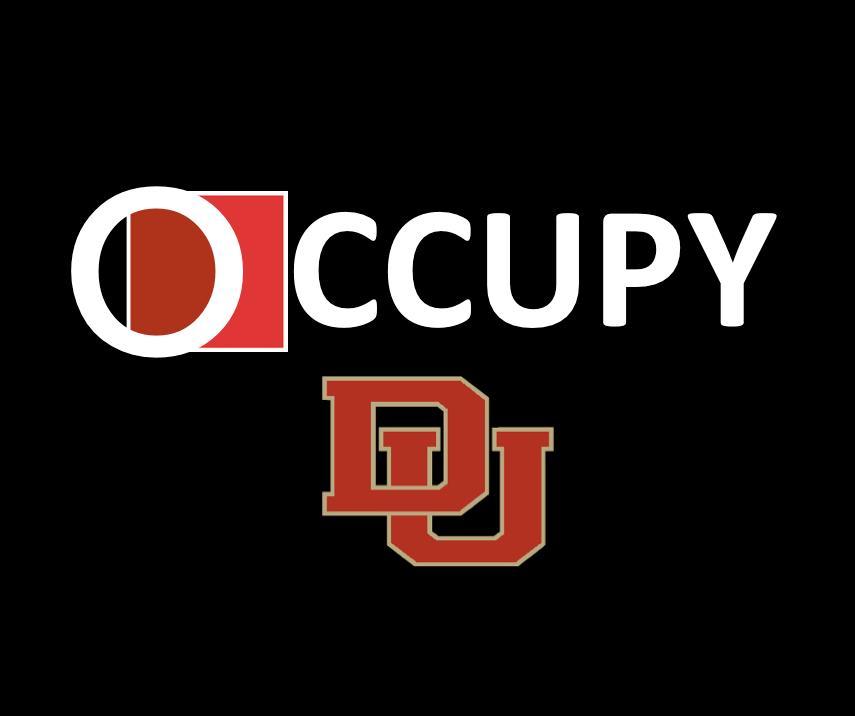A petition created by Occupy DU calls for the university to reshape its relationship with Denver-based Newmont Mining, a partner with Daniels College of Business.
The Occupy DU petition alleges that Newmont is one of the three highest contributors to Daniels, giving the school $50,000 annually for use in scholarships and funding.
Newmont Mining, one of the largest gold mining corporations in the world, operates in the United States, Australia, Africa and Latin America, according to Newmont’s website, newmont.com.
Newmont has been cited by Denver Justice Peace Committee’s (DJPC) MineWatch, a nonprofit fundraising organization that advocates for environmental protection and civilian rights in mining zones, for extensive mercury spills, ground water pollution and the displacement of indigenous communities.
However, Ethical Corporation magazine named Newmont a “Top 100 Corporate Citizen,” as well as one of the most ethical corporations in the mining industry. Newmont also advertises itself as one of the most environmentally-conscious gold mines in the world based on its practice of re-filling emptied water sources and cleaning the areas excavated for mining.
Newmont has signed the Extractive Industries Transparency Initiative, which was developed to reduce corruption through transparency and disclosing revenue and payments.
Newmont’s controversies that have received the most attention from environmental and political groups include a 2009 cyanide spill in Ghana, which caused a contamination of drinking water; a mercury spill in Peru, which reportedly poisoned approximately 1,000 citizens; and the contracting of a private security force (Forza), which has been cited for human right violations such as excessive force and harm to citizens.
The petition calls for the university to make a public announcement to the community and the school’s donors denouncing “the human rights violations and environmental abuses committed by Newmont Mining,” to cease accepting donations from Newmont and to create a committee “to review the human rights and environmental practices of major corporate donors.” They plan to submit the petition to the university in the near future, said Roshawn Bliss, a Korbel graduate student and leader with Occupy DU.
The petition was presented at an informational session and open group discussion in coordination with the DJPC last Wednesday night.
The presentation featured Paublo Hester, a DJPC MineWatch program intern and Korbel student, and Kevin Szewc, a volunteer with DJPC Minewatch and University College student. Also present was Jade Covode, a volunteer representative for DJPC who provided further information on Newmont and DJPC.
“If we are serious about being a university dedicated to the public good, we need to stop these practices,” said Bliss.
The university supports the company and its controversial record through accepting donations, and through the working relationship between Newmont and DU, according to Bliss.
“We are all implicitly supporting Newmont as well,” said Bliss. “Every day, corporate executives are put into decision-making positions that affect you as students.”
The Josef Korbel School of International Studies gave former Newmont CEO Wayne Murdy, who was the CEO in 2007, the “Bridge Builder Award.” The award is given annually to a member of the community for building bridges between DU and other parts of the world.
The allotment of this award became one of the most controversial pieces of the history between Newmont and DU because many students and faculty believed it was undeserved by Murdy and rallied in protest during the ceremony.
“While it’s true Newmont has built a bridge between DU and Peru, it is not something to be proud of,” said Szewc.
However, several who attended the presentation felt that the petition and message of Occupy DU was too critical and narrow.
“While some of the issues they discussed were accurately portrayed, they were not [from] Newmont,” said Jarred Olson, an International Business graduate student and employee in Investor Relations at Newmont. “For instance, the mercury spill was attributed to local employees.”
Olson argued that there should be partnership and open communication between DU, the students and Newmont instead of an end to the relationship entirely.
“This is a very receptive company, and provides very transparent information to the public,” said Olson.











